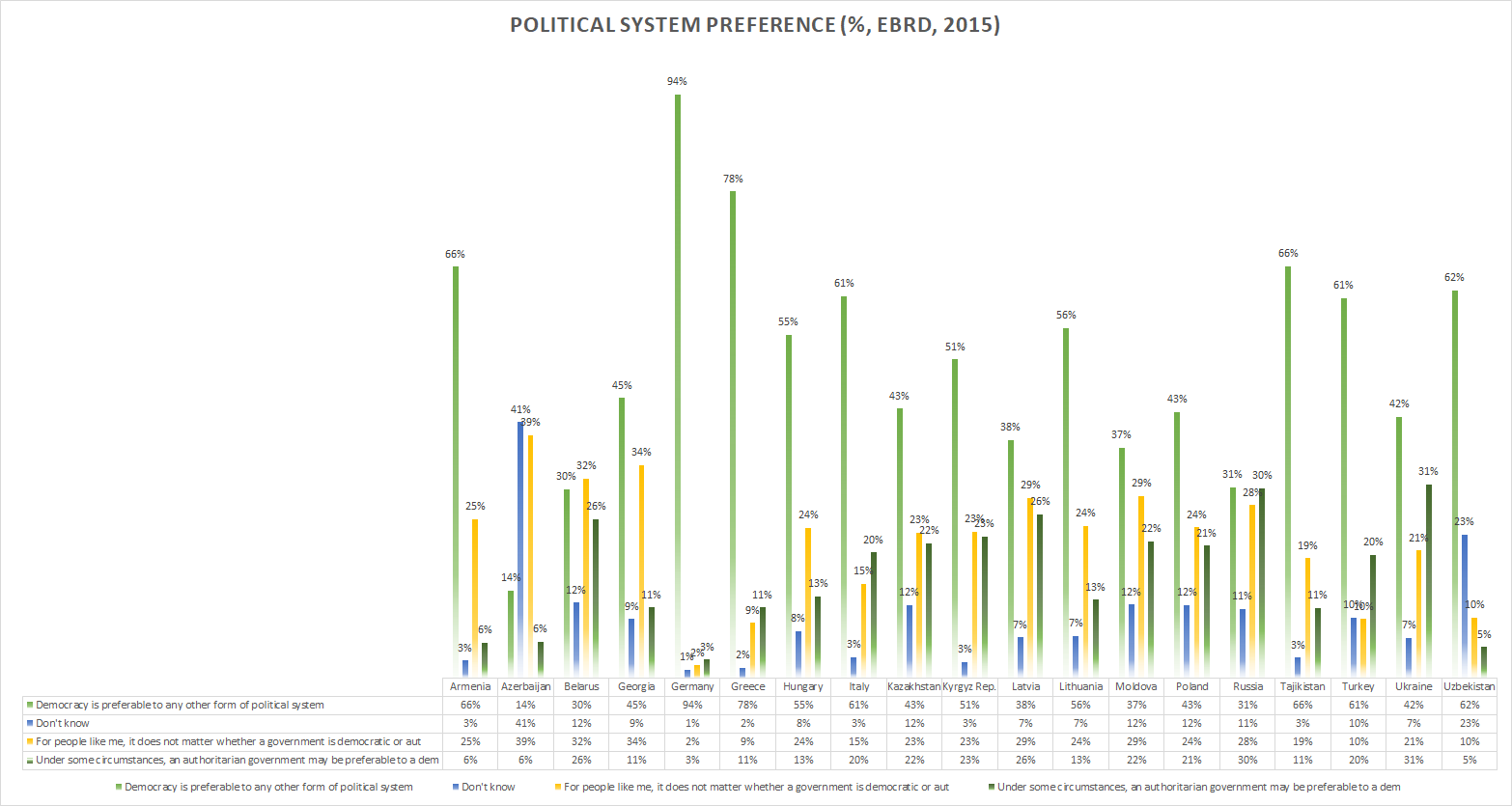Books in childhood households, Eurasia, 2015
The EBRD Life in Transition survey from 2015 asked participants about their childhood – “About how many books were in your childhood home? Do not count magazines, newspapers, or school books.”
Books in the childhood home is frequently used as a predictor of future educational attainment. But I’m curious for another reason. Some people argue that Azerbaijan, as a whole, isn’t as interested in reading/literacy/education as some other countries. This seemed like an interesting way to test this. Now of course, books cost money, so there is a tremendous influence of wealth here. Also note the high don’t knows in Azerbaijan – people are nervous about taking surveys there.







